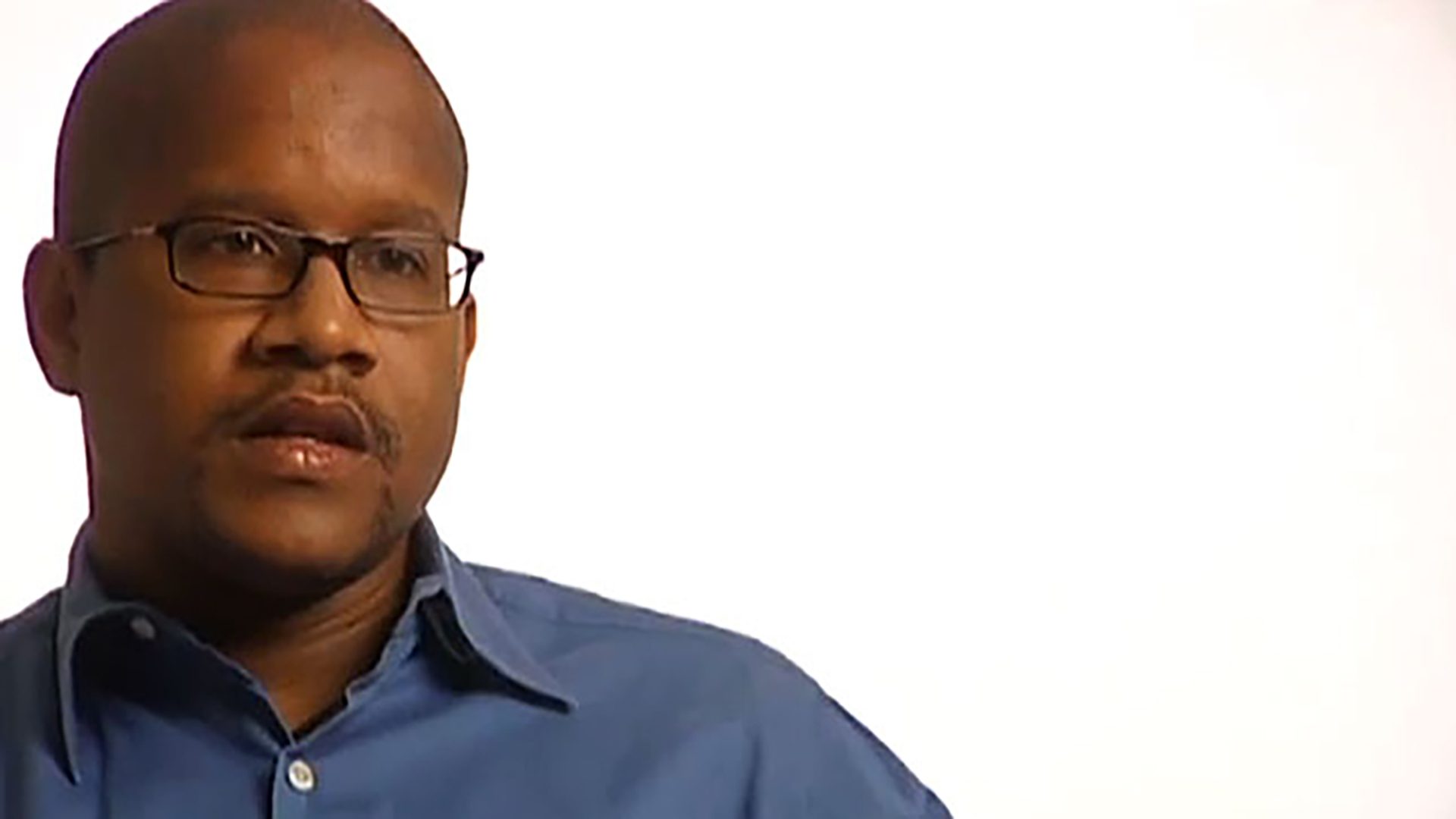Survivor Interview – Christopher W.
Christopher’s mother passed away from lung and brain cancer. He talks about losing his mother, the relationships she had with caregivers, and palliative care.

I work for the Securities & Exchange Commission in Washington, D.C. I’m an attorney there. We were a family of four, all lawyers. Unfortunately, my mother passed away.
My mom actually had a seizure going to work right after Christmas, on the train going to New York City. They took her off the train, and then they found out she had a tumor. At that time, we thought that the tumor was benign. As they were getting ready to do the pre-op work, my mother mentioned that there was a lump on her neck. They found that she did have some cancer cells. At that time, she had lung cancer, cancer of the adrenal glands, and eventually it did metastasize to her brain. It was T-4 advanced stage cancer at that point.
I think before that, I had some indications that she was really, really sick, because she was a smoker, and she had this cough. She couldn’t finish sentences, and it felt like, literally, she was gonna cough her lung out. My mother probably realized she was sick, too, because she had signed up for the Federal Long-Term Care Program a day or two before the seizure. It’s like insurance for elder care services and things that insurance wouldn’t normally cover: hospice-type stuff and 24-hour care.
We had a doctor who was pretty well thought of in New York, and he was doing a couple of different treatments. Initially, it was radiation, and then chemo. After she had her first dose of chemo, unfortunately, the tube got infected. The chemo just wiped her out and then the infection really, really wiped her out.
My mother had always dreamed about getting the bathrooms done in our house, and for some reason or another, it hadn’t actually worked out. She knew she was sick, but she wanted to have these bathrooms done. We said, “You can’t have the bathrooms done right now. You’re gonna have all that dust. You’re not in particularly good shape.” But she really wanted to have the bathroom done. Our neighbors across the street took my family in for six weeks or so, while they worked to get one of the bathrooms done.
She got to see the finished product. We moved back in the house. At that point, she was pretty immobile. She wouldn’t get up and do her little bit of exercise that she was to do every day, so her muscles atrophied, especially those time periods where she was particularly sick.
My mother used to be head of Criminal Tax of the IRS North Atlantic Region, so she signed off on all criminal tax matters from Maine to Maryland to Michigan. In the beginning, she would lose her train of thought. I think she was embarrassed about it, so she just stopped talking and shut down.
When it was going on, my dad was worried about medical care and physical care. My thing was, “Don’t you think it’s a good idea if we can get a counselor to come in and talk to her?” At some point, she had to know she was dying. I thought that would have been very good for her. I think it would have probably helped us all out, because maybe that would encourage her to talk a little bit more. Maybe gave her a little bit more fire.
I was in D.C., but I would come home every other weekend. I don’t know if it was apparent to my dad or my brother, who was in New York, but it was pretty clear to me that she was going down. I was very, very concerned, because she wasn’t getting out of the bed. My dad was a little too afraid to disturb what was going on. He believed in the doc and the medicine and was hoping for the best.
It was 178 days from the day she was stricken to the day she died. So it happened pretty quickly. In terms of the things we tried to do to make her life better, we got 24-hour care for her. When she got to the point where she really couldn’t move that much, that was a necessity. We set up a TV for her. We got her the best medical care that we thought we could get her. We used contacts to make sure that when she needed to get in the hospital, there wasn’t a waiting line.
If there was anything that we thought was a possibility besides the treatment that her doctor gave her, we would have looked into it. There were some experimental drug trials that we were thinking about looking into, but at the end, she deteriorated pretty rapidly. We just let the doctor try to work his magic and tried to keep her as comfortable as we could.
My brother was a little distant. He was going through his first year of Columbia Business School. He had a lot that he had to handle. So for him, he probably immersed himself a little bit more in school. Considering he was only 20 minutes away, I think I was home more often than he was.
My dad really couldn’t care for her the way he would have liked to. He has a small firm, so he has to generate business. He was trying to do both things at once. I think that my dad was just really afraid. He got immersed into her care and making sure that she was taking all the right pills. I remember seeing him getting these crazy pill boxes for every day of the week. For him, that’s how he dealt with it—labeling everything, going to Costco and getting the things that she liked to eat.
I tried to come home as much as I could, and when I was home, I would try to do the errands to lessen the burden on him. We all took up little roles in terms of what needed to be done. I was looking into getting the coverage from the federal long-term care people. My brother was handling a lot of financial stuff. We also hired some people to come in and do the books and handle the bills, so my dad wasn’t overwhelmed.
Generally, my mom spent a lot of time sleeping when I was around. I just sat there with her. I didn’t really say too much. I’ve never seen anybody die before. I didn’t know what I should be doing. Of course, I would hug her and kiss her, but I would just sit there and watch TV with her. My dad, of course, was a little bit more affectionate. She was his partner for 30 years.
After it, I spent ten days with my dad in the Dominican Republic. We spend a lot more time with each other now. I obviously can’t fill the void of my mother, but try to at least be there for my father. My cousin took him to a Knicks game last night, which I thought was great.
I contacted a psychiatrist, who recommended me to go speak to a social worker, and I’m still seeing her now. I was dealing with some issues at work that were causing other stresses in my life. I probably need to go back and fully grieve, because I don’t think that’s actually happened yet, so I think I’m going to continue to see her for a while. Some people grieve early, and some people, it takes a while, and some people, they just suppress it. I don’t know what the best way is, but we all deal with it in our own way.
I thought the world of my mother. We were very, very close. There’s some anger issues there. Even issues of, “Why did it have to be her?” But the therapist is helping to work me through it. We’re three men in my family, and not to stereotype, but I think men probably try to bite their lip and tough it out.
Unfortunately, me and my brother are not very talkative, but it has to do with some other issues that happened in our life. I will always love him, and I think he knows that I’m here for him, and he’s there for me. We’ll get to it when we can. It was a rough year.
When I come home, the house is just a lot colder, a lot staler, because she did bring so much life to the house. We all say that she was the glue that kept the family together. So that glue’s not there right now. It’s difficult, but I think in our own way, I’m supporting my dad, my brother’s supporting my dad, and my dad’s supporting us, individually. We’ll make it through.
My name is Christopher Wilson, and my mom passed away from lung cancer and brain cancer in June 2003.

